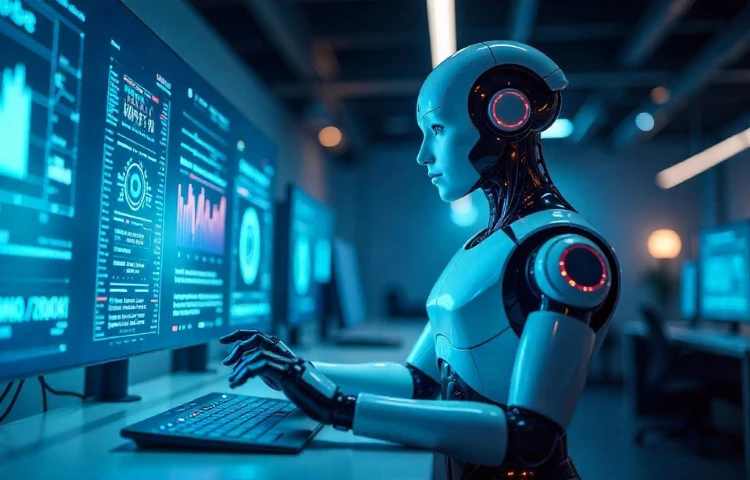

Prefer to listen instead? Here’s the podcast version of this article.
In an era where artificial intelligence evolves at breakneck speed, keeping up with the latest developments is not just an advantage—it’s essential. This month has been particularly dynamic, with innovations that are reshaping industries, challenging ethical frameworks, and setting new benchmarks for AI capability and impact. From groundbreaking model releases to transformative applications in healthcare and sustainability, the AI landscape is buzzing with progress.
OpenAI’s release of the o3 model marks a significant milestone in AI development. Designed to enhance logical reasoning, o3 demonstrates superior performance in complex tasks, including coding and scientific problem-solving. Notably, it achieved an 87.7% score on the GPQA Diamond benchmark, showcasing its advanced capabilities.
Google researchers David Silver and Richard Sutton introduced the concept of the “Era of Experience,” emphasizing AI’s evolution towards learning from real-world interactions. This approach aims to overcome the limitations of data scarcity by enabling AI to generate its own learning experiences, paving the way for more adaptable and intelligent systems. [Business Insider]
The University of Pittsburgh’s partnership with Leidos exemplifies AI’s transformative impact on healthcare. Their initiative focuses on leveraging AI to improve diagnostics for cancer and heart disease, particularly in underserved communities. By enhancing diagnostic speed and accuracy, this collaboration aims to address healthcare disparities and improve patient outcomes. [Axios]
Anthropic predicts the emergence of AI-powered virtual employees within corporate environments as early as next year. While this innovation promises increased efficiency, it also raises significant cybersecurity concerns. Ensuring secure integration and management of AI agents will be paramount to prevent potential breaches and maintain organizational integrity. [Axios]
The International Monetary Fund (IMF) reports that AI advancements are expected to boost global GDP by approximately 0.5% annually from 2025 to 2030. However, this growth comes with increased energy demands, potentially leading to a 1.2% rise in greenhouse gas emissions. Balancing economic benefits with environmental responsibilities will be crucial as AI continues to expand. [Reuters]
As artificial intelligence continues to redefine the boundaries of what’s possible, staying informed and adaptable is key to leveraging its full potential. Whether it’s new model capabilities, ethical innovations, or transformative applications across industries, the pace of change demands ongoing attention and strategic insight. By exploring these breakthroughs and the resources linked throughout this post, you’re not just keeping up—you’re positioning yourself and your organization to lead in the AI-driven future.
WEBINAR